Big Red Book
Celebrating television's This Is Your Life
Des O'CONNOR (1932-2020)
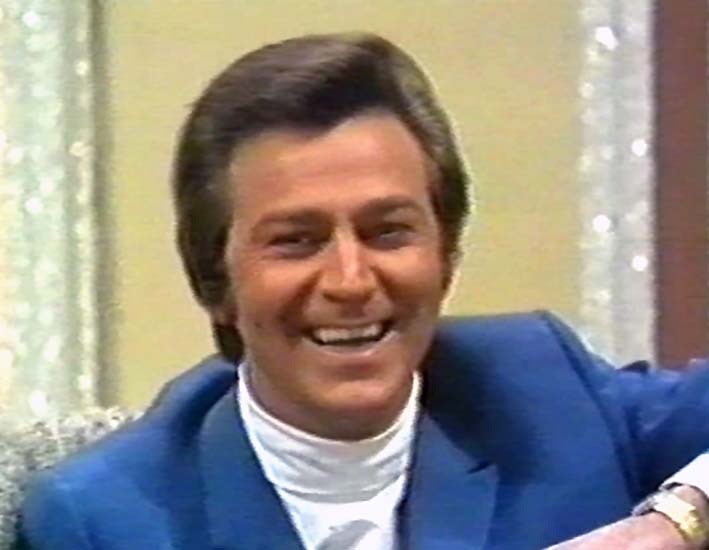
- The first edition of This Is Your Life broadcast in colour and on ITV
THIS IS YOUR LIFE - Des O'Connor, singer, presenter and comedian, was surprised by Eamonn Andrews while performing at the London Palladium, from where the programme was then broadcast.
Des, who was born in Stepney, east London, began his working life in a shoe factory in Northampton, having been evacuated there during the Second World War. After completing his National Service in the Royal Air Force, Des worked as a Redcoat at Butlin's holiday camp in Filey, which led to him entering show business professionally.
After working his apprenticeship in the clubs and music halls across the country, he got his big break on television in 1963 when he was given his own variety show on ITV. He also had a successful career as a recording artist - his first single Careless Hands, released in 1967, was followed a year later by I Pretend, which became a number-one hit in the UK singles chart.
"What's going on? What a shock, Eamonn - you'll forgive me!"
programme details...
- Edition No: 257
- Subject No: 257
- Broadcast live: Wed 19 Nov 1969
- Broadcast time: 7.00-7.30pm
- Venue: London Palladium
- Series: 10
- Edition: 1
on the guest list...
- Gillian - wife
- Jack Douglas
- Harry - father
- Maude - mother
- Pat - sister
- Johnny Stringer
- Tom Smith
- Max Bygraves - live link
- Charlie Williams
- Lonnie Donegan
- Cyril Berlin
- Billy Baxter Filmed tributes:
- Tracy Jane - daughter
- Samantha - daughter
related appearances...
- Sacha Distel – Dec 1971
- Jim Dale – Nov 1973
- Bill Ward – Dec 1986
- Engelbert Humperdinck – Nov 1988
- Ernie Wise – Dec 1990
- Lonnie Donegan – Apr 1991
- Shirley Bassey – Jan 1993
- The Night of 1000 Lives - Jan 2000
- Bob Monkhouse - Apr 2003
production team...
- Researchers: Jack Crawshaw, John Stapleton, Mary McAnally
- Writers: Tom Brennand, Roy Bottomley
- Director: Margery Baker
- Producer: Robert Tyrrell
- names above in bold indicate subjects of This Is Your Life
there's no business like it
a celebration of a thousand editions
the show's fifty year history
the genesis of the programme
the iconic titles and theme tunes
a career review
When a life hangs in the balance
TV Times reveals more behind-the-scenes stories
Press speculation and announcements on new presenter Michael Aspel
The Daily Mail profiles the programme's history
Des O'Connor recalls his experience of This Is Your Life in a excerpt from The Night Of 1000 Lives originally broadcast in January 2000
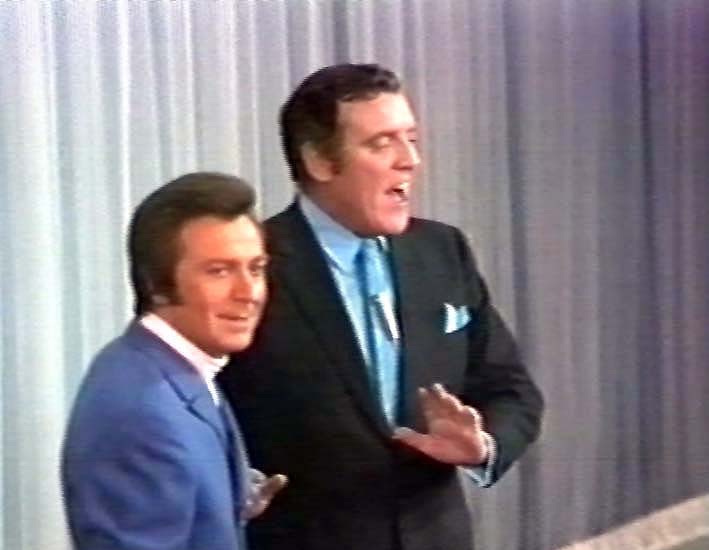
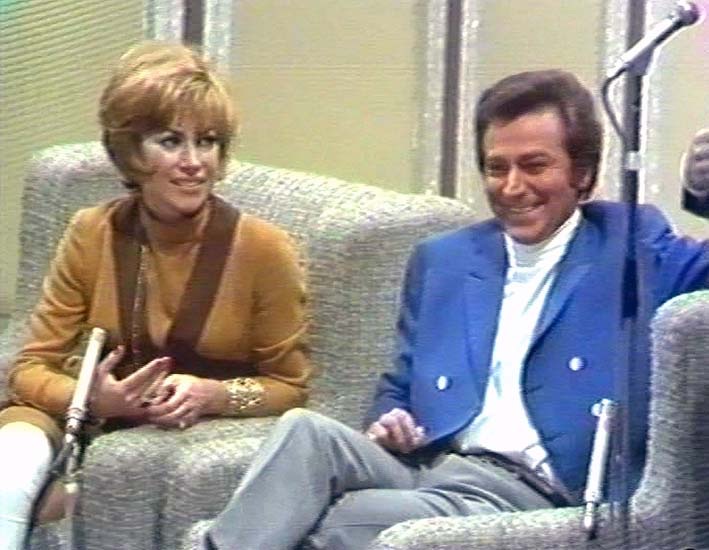
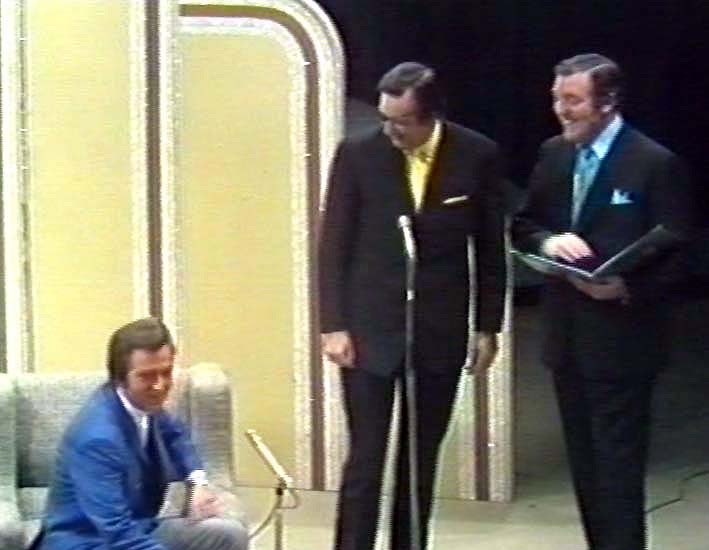
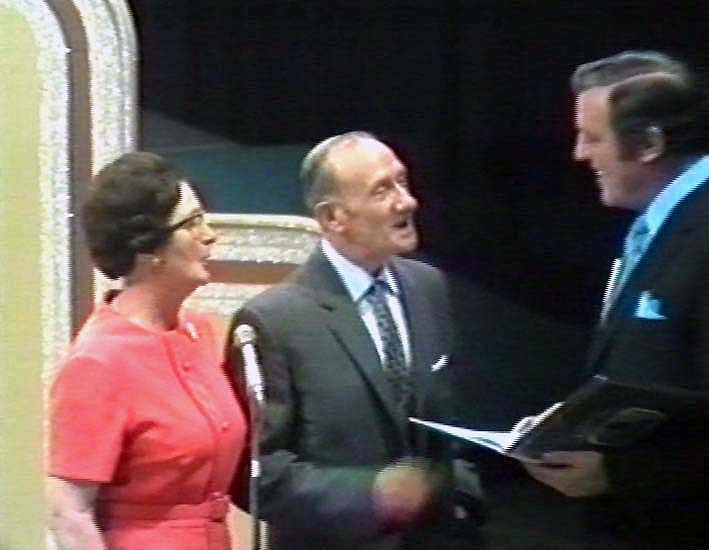
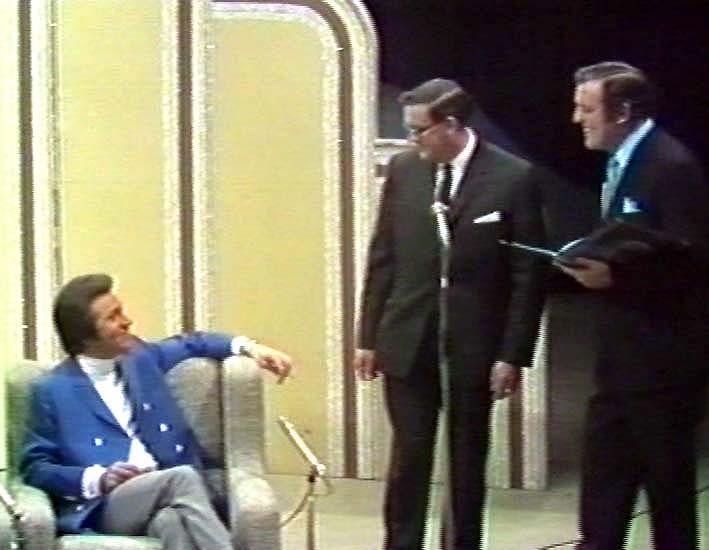
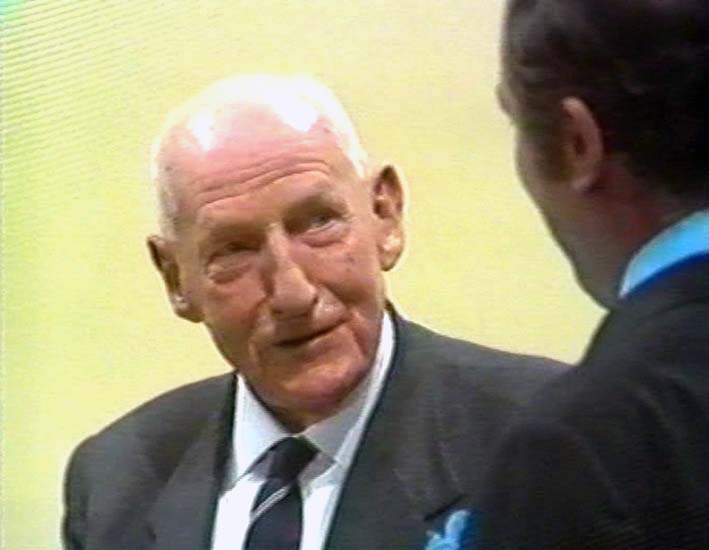
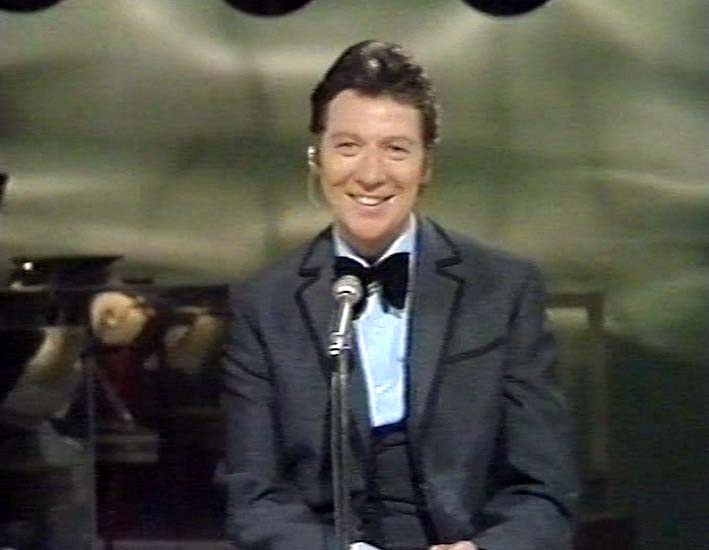
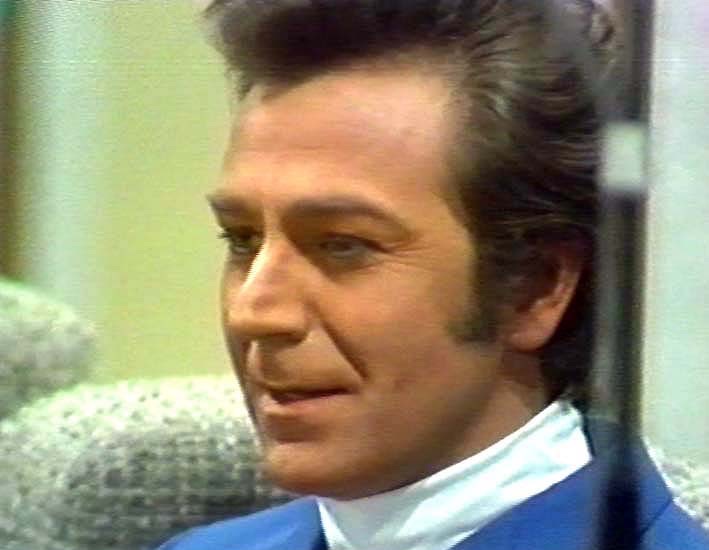
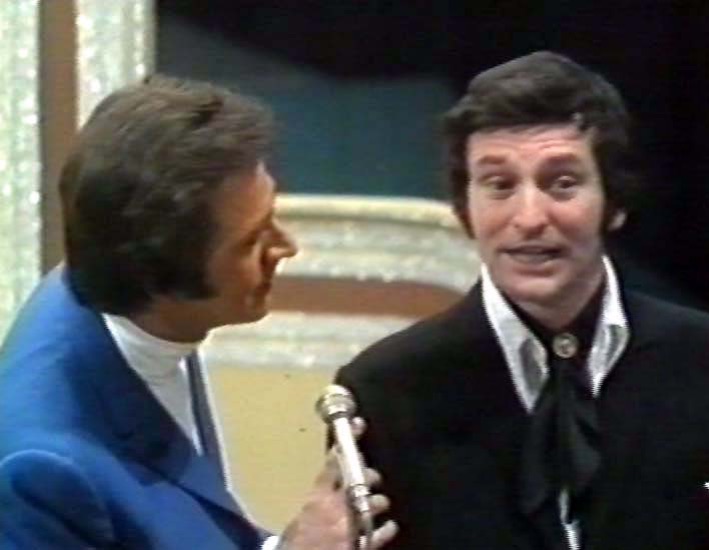
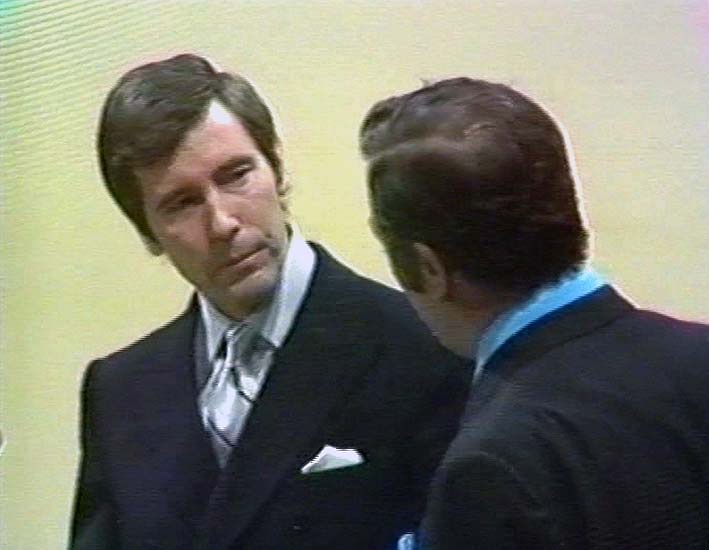
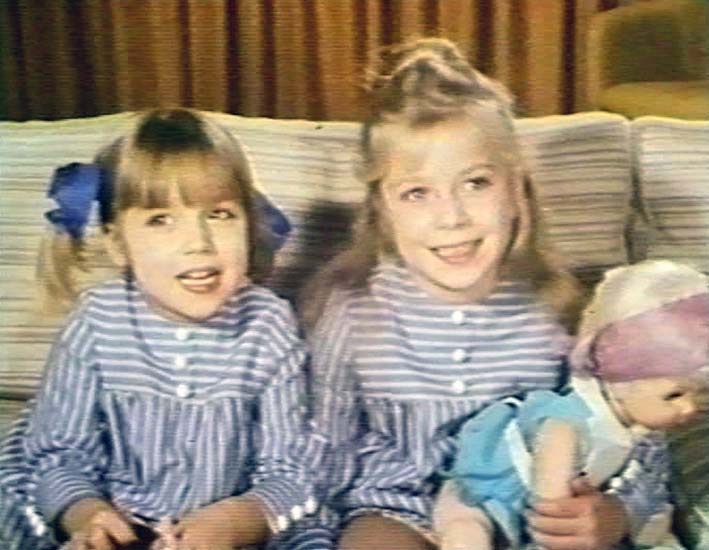
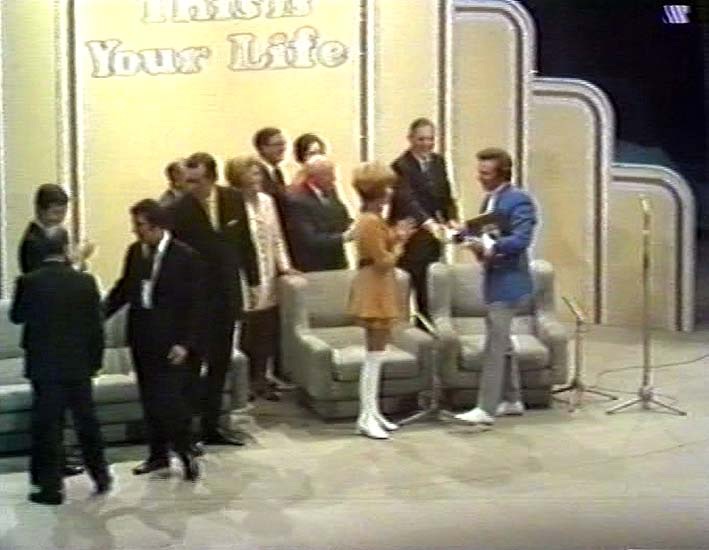
Screenshots of Des O'Connor This Is Your Life
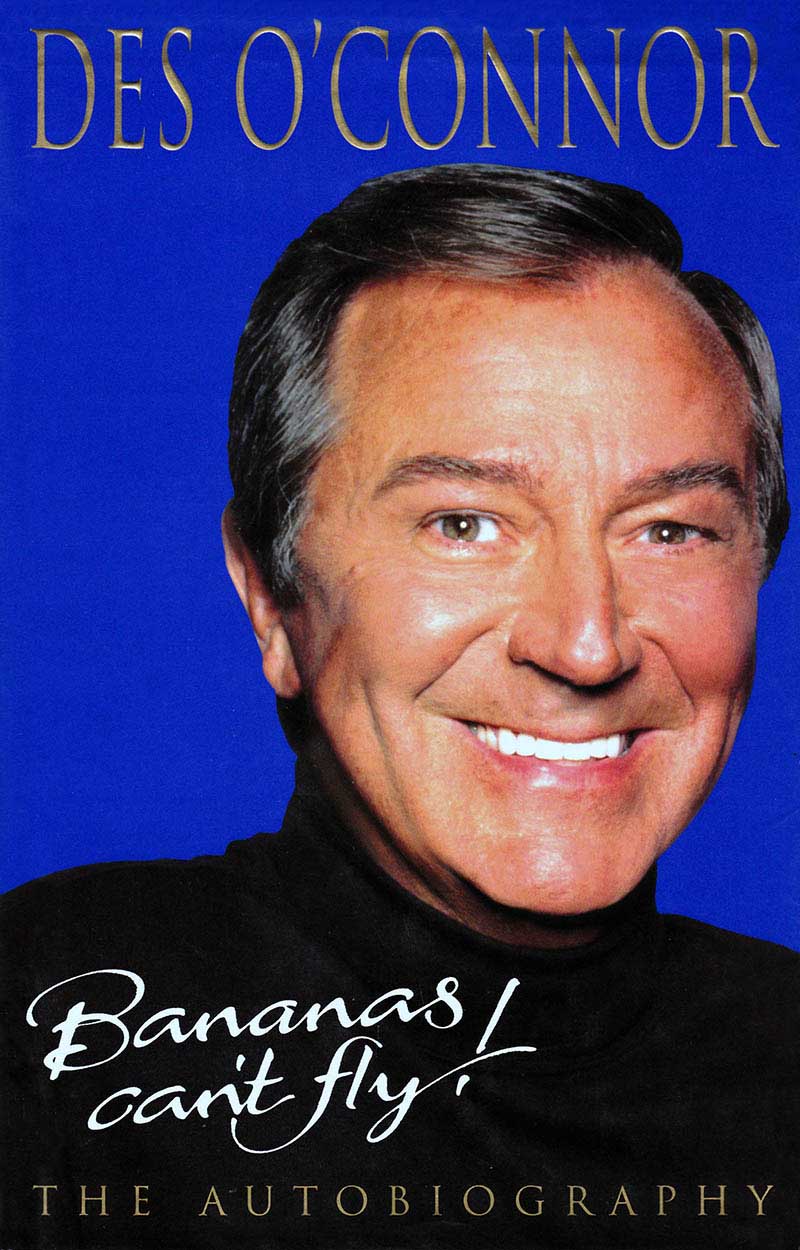
The last year of the sixties was a momentous one all round. Neil Armstrong walked on the moon, taking a giant step for mankind, and I was walking on air, taking giant steps for my career.
In January 1969 I was starring in a record-breaking panto at the Hippodrome, Birmingham. Ten days before the show was due to close I was admitted to the Birmingham General Hospital suffering from nervous exhaustion, severe food poisoning and dehydration.
After two weeks I asked to be discharged so that I could make the final performance of the show. Doctors told me to forget the idea and strongly advised me to take the next six months off.
But by April I was starring in my own TV series, transmitted from the stage of the London Palladium. In mid-May I achieved another ambition, opening as top of the bill, again at the Palladium, in a lavish new stage show called Here and Now, which was booked for eight weeks but ended up running till December. In November I hosted the Royal Variety Performance, again from the Palladium. During the run of the Palladium season, Sir Lew Grade, then head of Associated Television (ATV), was secretly bringing in American TV moguls to watch me. As a result, they did a deal with him for me to star in my own show, coast to coast, on US television.
Thirteen shows a week at the Palladium was quite a physical drain over a period of seven months, especially as I was on stage for the entire second half of Here and Now, and by November I was beginning to feel a little jaded. One evening, just before the performance, Bernard Delfont, the promoter of the show, popped into my dressing room and suggested it might do me good to get out of London for a few hours. He knew I loved racing and owned a racehorse, which was stabled just outside Newmarket. 'After the show tonight, why don't you and Syd drive up to Newmarket, watch your horses on the heath in the morning, have a nice lunch, get some fresh air, and have a lazy drive back? You'll feel better, son.'
He seemed genuinely concerned about me and it was an attractive idea. I turned to Syd Maurice, our company manager. 'What do you think, Syd?'
Syd was enthusiastic. 'Yeah, Des, why not? Let's do it. I'll make the calls.'
It was a clear, dry night, Syd was a good driver and we made good time. I slept most of the way. We arrived at Dennis Rayson's stables just after midnight. Racing people, who are up with the lark and out galloping thoroughbreds at 6.30am, are usually tucked up in bed by eleven o'clock, but Rose Rayson had waited up for us. She settled us by the inglenook in the cosy lounge, made us a pot of tea and toasted sandwiches and bid us goodnight. Syd and I decided to call it a day about a half an hour later.
I woke around seven to the sound of metal on concrete. I love that sound. There's something about the clatter of horses' hooves. I peeped out of my bedroom window. In the stable courtyard below were about thirty racehorses, their breath clearly visible in the chill of a crisp, November morning. The stablelads and apprentices, some as young as thirteen, were, as usual, laughing and joking. I have spent many early mornings at racing stables all over the world, and I am always fascinated by the enthusiasm, the buzz and the camaraderie of the staff at a well-run yard.
Bernie Delfont had been right. Getting away from London and the theatre made me feel good, and for a few hours I forgot about the show. There were other thrills to enjoy: the special smell of the stables. I found myself once again lost in the dreams and fantasies of the thoroughbred world, an existence in which every member of a racing stable, from the trainer to the youngest stablelad, is continually lifting themselves with the thought that this foal, that two-year old, just might, one day, be a Derby winner. It's a dream, of course, but a perfectly possible one.
Lunch alone was worth the journey. Rose, as always, found time to cook a great steak and kidney pudding. It was a good job Dennis was a trainer and not a weight-watching jockey. There was the usual banter with the ever-cheerful Dennis, a quick tour of the horseboxes, a packet of mints for my four-legged friends and we were on our way back to London. I worked out that we would make the Palladium by about 4.30 or 5pm, leaving me plenty of time to get ready for the first show at 6.15. But half an hour into our journey, Syd was complaining about a stomach upset. 'Sorry, Des, but we'll have to stop.'
We made three unscheduled stops, the last for over thirty-five minutes. I was now getting seriously worried about the time. I later discovered that while I was worrying, Syd Maurice was perched on a public toilet seat in Bishops Stortford casually doing a crossword.
When he finally emerged it occurred to me that he looked far too healthy for someone who was having a touch of colic, but I was too concerned about getting back to dwell on that thought. 'Quick, get in, Syd. I'll drive. We will just about make it.'
We arrived at the Palladium at 5.45. As I was rushing to get ready for the show, I suddenly felt a bit dizzy. The stress of the day was getting to me. I decided it would be a good idea to get a breath of fresh air. I made my way up the steps from the stage door and, half hidden by the main backstage gates, filled my lungs with the cool, evening air. It was raining now, enough to slow the traffic, and I found myself staring at the occupants of one large, deluxe coach that was crawling along Great Marlborough Street. And I mean staring. I couldn't believe what I saw. 'That's my dad sitting with Danny La Rue. That's my sister laughing with Lonnie Donegan. And surely that can't be my mum sitting next to Max Bygraves.' I tried to refocus my eyes. 'It is, it's my mum!' I was standing there watching my entire life – family, old friends, old workmates, people I hadn't seen for years – all going by on a coach. I was quite clearly hallucinating. Genuinely scared, I burst into the dressing room. [Bigredbook.info editor: Danny La Rue does not appear and Max Bygraves appears via a live link from Teddington Studios]
'Quick, Syd, get me a brandy. I'm not well. I feel very... strange.'
'You don't want a brandy, you're on in five minutes!'
'I'm not going on. I don't feel well. Look, I might feel better later, but put the understudy on for the opening.'
'Understudy? Don't be daft. I can't do that. Not just for the opening.'
He was right. It was a vintage Palladium opening: thirty performers on stage, twenty-four dancers in mini-skirts, a real Mini car, a backdrop of King's Road boutiques and me singing my own hit song about the King's Road, 'Dik-a-Dum-Dum'.
Many times in the past I have gone on stage feeling half dead but the adrenaline takes over and you somehow get through the show. But whatever it was that was the matter with me that night, it was not physical. This was something else. Something I couldn't understand. 'No, Syd. I don't feel right. Put the understudy on.'
Syd Maurice was a gentleman, a lovely guy, and we had never had a cross word in the entire run of the show. But suddenly, he was a stranger. He was yelling at me: 'Get on that effing stage! Get on now, before I chin you!'
I was shocked. I had never seen Syd like this. And now he was actually threatening me.
What I didn't know was just how vital it was for him to get me out on that stage. As I learned afterwards, at that very moment, as well as the Palladium audience, a Thames Television crew and 12 million television viewers were also waiting expectantly for my arrival. That day eight TV cameras and a full production team had been smuggled into the Palladium. They were there to transmit the first ITV version of This Is Your Life – and I had been chosen as its first subject.
My previously mild mannered friend then grabbed the lapels of my blue jacket, swung me round against the wall like a rag doll and, through gritted teeth, snarled, 'You've been nothing but trouble since we started.'
What? I couldn't believe what I was hearing. This hallucination was getting worse. Syd's face had now turned slightly purple. He was a big guy, well over six feet. 'Well, this might be a hallucination, but I think he is about to thump me,' I told myself. I muttered something about getting the Rockin' Berries to stand by. 'But I'm only going to sing the song,' I insisted. 'No gags.'
A minute later I was walking on stage to the usual warm welcome of the Palladium audience. I got through 'Dik-a-Dum-Dum' OK, and stepped forward to allow the Carnaby Street front cloth to drop behind me, leaving me alone on the vast stage.
As I took a couple more paces forward I began to feel even more unsure of myself. Why was I feeling like this? I knew this stage, this theatre. I had made this entrance and sung that opening song countless times over the previous six months, but tonight it all seemed different. The lighting was brighter and back stage everything seemed quieter and... what on earth was that in the royal box? Without my specs, the grey shapes of the TV cameras positioned there looked like baby elephants.
A quick glance into the wings told me that the Rockin' Berries were not ready. I rapidly dismissed a subliminal message urging me to do another Glasgow. The lighting was becoming brighter still. The audience were applauding. And Eamonn Andrews was heading centre stage, carrying a big red book. I immediately recognised Eamonn and by now I realised that something showbizzy was going on. Had This Is Your Life been a regular on our screens then, I would have known instantly what was happening, but the programme hadn't been seen for nearly ten years. [Bigredbook.info editor: the programme had been off air for five years] So I wasn't sure what was going on. Maybe it was Candid Camera-type thing, or a new game show. Whatever was happening, my main feeling was one of relief that the extraordinary moments I had just experienced were beginning to make some kind of sense. Then I heard Eamonn say: 'Des O'Connor, This Is Your Life.'
The cloth behind me flew away, and there on the stage were my family and friends, some of whom I hadn't seen for years. I have since seen a recording of the show and watched myself greeting, hugging, kissing, ad-libbing and generally enjoying the experience. I seemed to be coping really well until little Tracy Jane and Samantha told the world: 'Our Dad is the best dad in the whole world.'
Cue the waterworks. Suddenly, Eamonn was handing me the red book, the credits were rolling on screens in living rooms all over the country and whatever this was, it was over. I could now have a stiff drink, sit back and relax. Someone would explain it all later. Right now I was washed out, emotionally drained. A revived-looking Syd Maurice ushered me away to the wings and told me to hurry up and get changed.
'What do you mean, get changed?'
'The second half starts in about 10 minutes!'
'You mean I've still got to do the second half, an hour and a quarter, by myself? After all that, haven't they cancelled this show?'
'No, just the first half. The audience are happy enough. They enjoyed it. Your family have been told you'll join them later – there's a reception after the show.'
'What, after this show?'
'No, after the second show!'
By now I wanted to thump Syd.
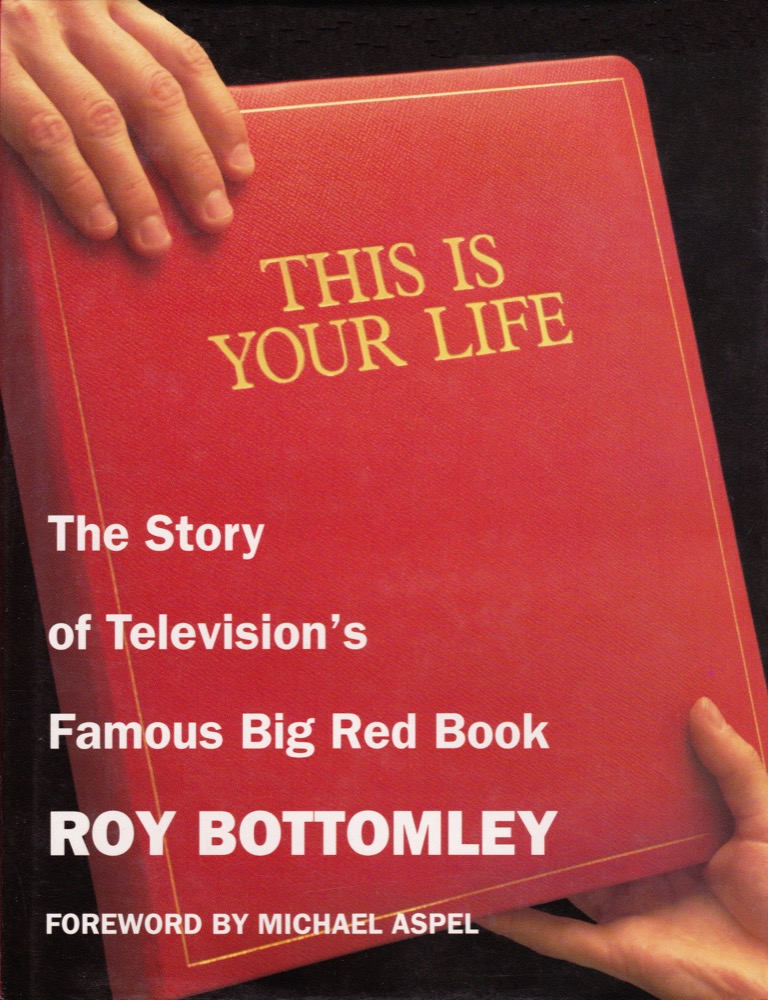
At our meeting the next day he thumped the table: 'That was good, very good. But I want our first transmission on the ITV network to be live.'
But who? And how? Scanning the Evening Standard I spotted a London Palladium advertisement announcing that Des O'Connor was opening there in the week of our first broadcast.
Not for the first - or the last - time did Eamonn mutter: 'But is he big enough?' I convinced him we should do the Life on Des with a ploy Eamonn seized on – he would walk on stage at the Palladium and we would do the programme right there and then, live from that world-famous theatre.
But the Curse of the First Life struck again; this time not a leak to the press, but a far more bizarre situation.
Everything was fixed with the Palladium management for the evening of 19 November 1969. Guests who would appear on the show had assembled at Thames Television HQ. They were ushered into a luxury coach to be taken to the theatre.
At that very moment Des O'Connor was strolling from his dressing room and heading towards the stage door to take a breath of the evening air before going on stage.
A set of traffic lights, less than a hundred yards away, turned to red. A coach stopped. Our coach.
Des blinked. Did he recognise a familiar face or two? Or was it a trick of the imagination? Before he could get a closer look, the lights changed and the coach drove off.
On board was every single surprise guest. Fortunately we remained oblivious to the incident until after the show, by which time it had been confirmed to Des that he hadn't been hallucinating.

The very tightest of secrets can sometimes get out in the strangest ways. The first transmission of This Is Your Life by Thames was from the London Palladium.
The date was 1969 and it was also the first night of Des O'Connor's stage show. Before the curtain was due to go up, Des got very nervous and decided to go outside to get some air. He stood at the back of the theatre and just stared at the traffic. Then he saw a large coach slowly drive past. Although the coach was only dimly lit, he was sure that he saw his entire family passing before my eyes: uncles, aunts and some relatives he had not seen in years.
He said later the experience was like the one you have when you're drowning and your life flashes before you. He vowed at the time never to have a drink before a performance again and shrugged it off.
That was until he saw Eamonn step on to the stage from behind the scenery and say: 'Des O'Connor, This Is Your Life.'
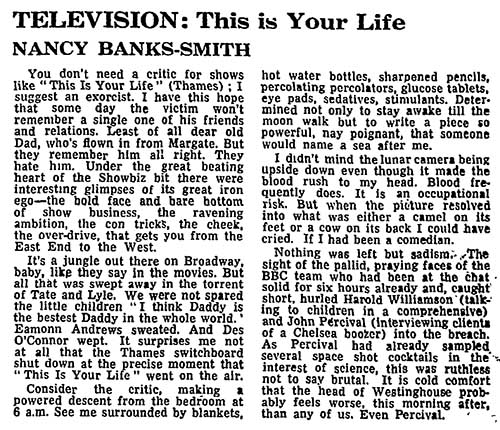
The Guardian 20 November 1969
NANCY BANKS-SMITH
You don't need a critic for shows like This Is Your Life (Thames); I suggest an exorcist. I have this hope that some day the victim won't remember a single one of his friends and relations. Least of all dear old Da, who's flown in from Margate. But they remember him all right. They hate him. Under the great beating heart of the Showbiz bit there were interesting glimpses of its great iron ego - the bold face and bar bottom of show business, the ravening ambition, the con tricks, the cheek, the over-drive, that gets you from the East End to the West.
It's a jungle out there on Broadway, baby, like they say in the movies. But all that was swept away in the torrent of Tate and Lyle. We were not spared the little children "I think Daddy is the bestest Daddy in the whole world." Eamonn Andrews sweated. And Des O'Connor wept. It surprises me not at all that the Thames switchboard shut down at the precise moment that This Is Your Life went on the air.
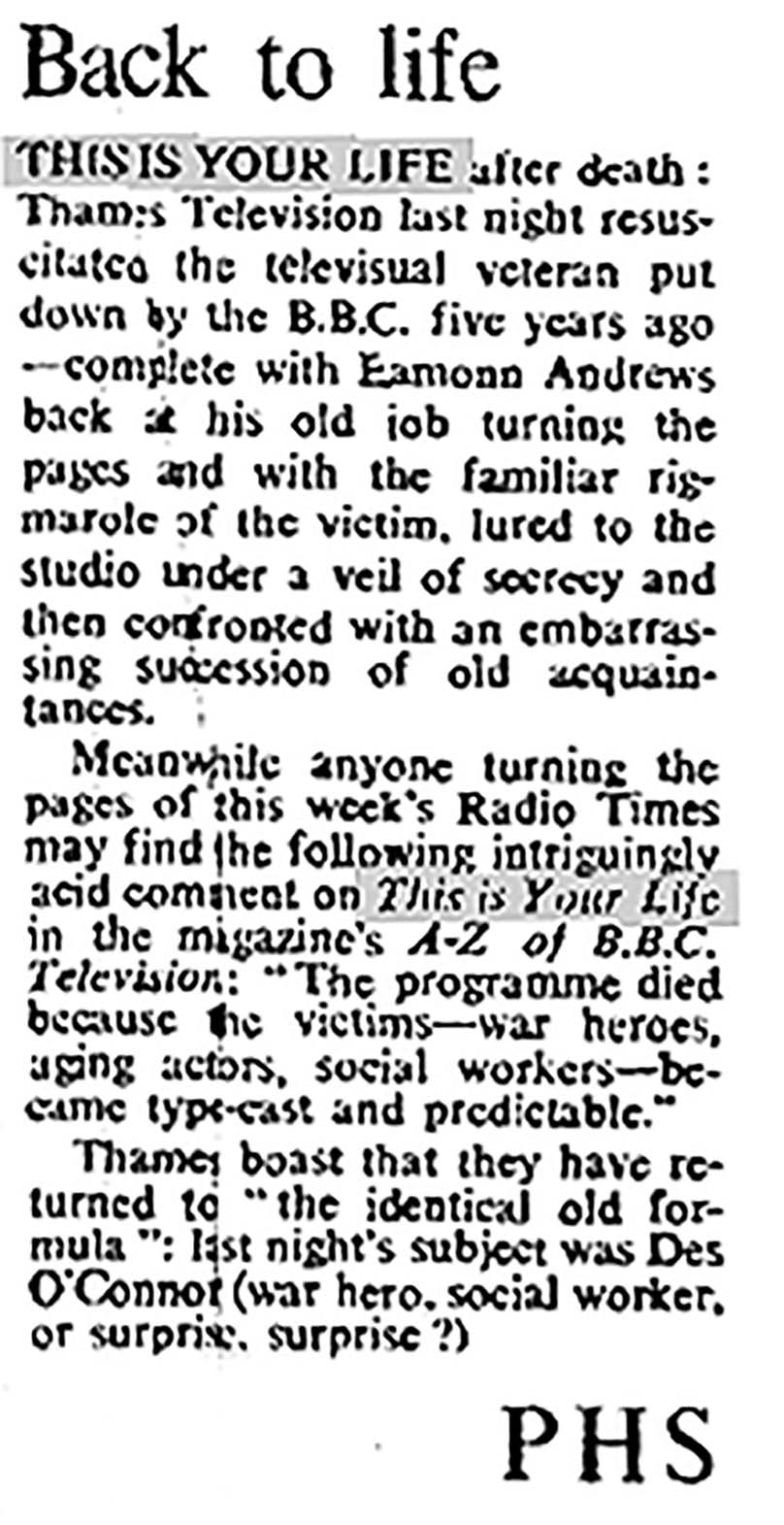
The Times 20 November 1969
THIS IS YOUR LIFE after death: Thames Television last night resuscitated the televisual veteran put down by the BBC five years ago – complete with Eamonn Andrews back at his old job turning the pages and with the familiar rigmarole of the victim, lured to the studio under a veil of secrecy and then confronted with an embarrassing succession of old acquaintances.
Meanwhile anyone turning the pages of this week's Radio Times may find the following intriguingly acid comment on This Is Your Life in the magazine's A-Z of BBC Television: "The programme died because the victims – war heroes, ageing actors, social workers – became typecast and predictable."
Thames boast that they have returned to "the identical old formula": last night's subject was Des O'Connor (war hero, social worker, or surprise, surprise?)
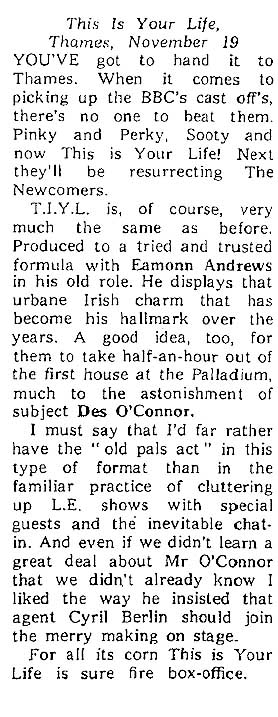
The Stage 27 November 1969
Thames, November 19
YOU'VE got to hand it to Thames. When it comes to picking up the BBC's cast off's, there's no one to beat them. Pinky and Perky, Sooty and now This Is Your Life! Next there'll be resurrecting The Newcomers.
TIYL is, of course, very much the same as before. Produced to a tried and trusted formula with Eamonn Andrews in his old role. He displays that urbane Irish charm that has become his hallmark over the years. A good idea, too, for them to take half-an-hour out of the first house at the Palladium, much to the astonishment of subject Des O'Connor.
I must say that I'd far rather have the "old pals act" in this type of format than in the familiar practice of cluttering up L.E. shows with special guests and the inevitable chat-in. And even if we didn't learn a great deal about Mr O'Connor that we didn't already know I liked the way he insisted that agent Cyril Berlin should join the merry making on stage.
For all its corn This Is Your Life is sure fire box-office.
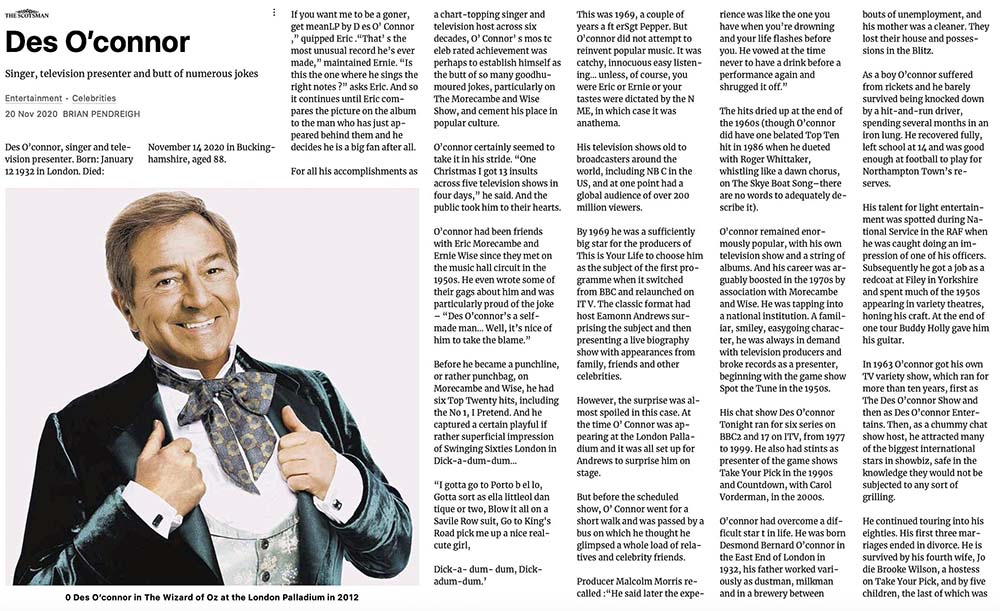
The Scotsman 20 November 2020
Singer, television presenter and butt of numerous jokes
BRIAN PENDREIGH
Des O'Connor, singer and television presenter. Born: January 12 1932 in London. Died: November 14 2020 in Buckinghamshire, aged 88.
"If you want me to be a goner, get me an LP by Des O'Connor," quipped Eric. "That's the most unusual record he's ever made," maintained Ernie. "Is this the one where he sings the right notes?" asks Eric. And so it continues until Eric compares the picture on the album to the man who has just appeared behind them and he decides he is a big fan after all.
For all his accomplishments as a chart-topping singer and television host across six decades, O'Connor's most celebrated achievement was perhaps to establish himself as the butt of so many good-humoured jokes, particularly on The Morecambe and Wise Show, and cement his place in popular culture.
O'Connor certainly seemed to take it in his stride. "One Christmas I got 13 insults across five television shows in four days," he said. And the public took him to their hearts.
O'Connor had been friends with Eric Morecambe and Ernie Wise since they met on the music hall circuit in the 1950s. He even wrote some of their gags about him and was particularly proud of the joke - "Des O'Connor's a self-made man... Well, it's nice of him to take the blame."
Before he became a punchline, or rather punchbag, on Morecambe and Wise, he had six Top Twenty hits, including the No 1, I Pretend. And he captured a certain playful if rather superficial impression of Swinging Sixties London in Dick-a-dum-dum...
"I gotta go to Portobello, gotta sorta sell a little old antique or two. Blow it all on a Savile Row suit, go to King's Road pick me up a nice real cute girl,
Dick-a-dum-dum, Dick-a-dum-dum."
This was 1969, a couple of years after Sgt Pepper. But O'Connor did not attempt to reinvent popular music. It was catchy, innocuous easy listening... unless, of course, you were Eric or Ernie or your tastes were dictated by the NME, in which case it was anathema.
His television show sold to broadcasters around the world, including NBC in the US, and at one point had a global audience of over 200 million viewers.
By 1969 he was a sufficiently big star for the producers of This Is Your Life to choose him as the subject of the first programme when it switched from BBC and relaunched on ITV. The classic format had host Eamonn Andrews surprising the subject and then presenting a live biography show with appearances from family, friends and other celebrities.
However, the surprise was almost spoiled in this case. At the time O'Connor was appearing at the London Palladium and it was all set up for Andrews to surprise him on stage.
But before the scheduled show, O'Connor went for a short walk and was passed by a bus on which he thought he glimpsed a whole load of relatives and celebrity friends.
Producer Malcolm Morris recalled: "He said later the experience was like the one you have when you're drowning and your life flashes before you. He vowed at the time never to have a drink before a performance again and shrugged it off."
The hits dried up at the end of the 1960s (though O'Connor did have one belated Top Ten hit in 1986 when he dueted with Roger Whittaker, whistling like a dawn chorus, on The Skye Boat Song - there are no words to adequately describe it).
O'Connor remained enormously popular, with his own television show and a string of albums. And his career was arguably boosted in the 1970s by association with Morecambe and Wise. He was tapping into a national institution. A familiar, smiley, easygoing character, he was always in demand with television producers and broke records as a presenter, beginning with the game show Spot the Tune in the 1950s.
His chat show Des O'Connor Tonight ran for six series on BBC2 and 17 on ITV, from 1977 to 1999. He also had stints as presenter of the game shows Take Your Pick in the 1990s and Countdown, with Carol Vorderman, in the 2000s.
O'Connor had overcome a difficult start in life. He was born Desmond Bernard O'Connor in the East End of London in 1932, his father worked variously as dustman, milkman and in a brewery between bouts of unemployment, and his mother was a cleaner. They lost their house and possessions in the Blitz.
As a boy O'Connor suffered from rickets and he barely survived being knocked down by a hit-and-run driver, spending several months in an iron lung. He recovered fully, left school at 14 and was good enough at football to play for Northampton Town's reserves.
His talent for light entertainment was spotted during National Service in the RAF when he was caught doing an impression of one of his officers. Subsequently he got a job as a redcoat at Filey in Yorkshire and spent much of the 1950s appearing in variety theatres, honing his craft. At the end of one tour Buddy Holly gave him his guitar.
In 1963 O'Connor got his own TV variety show, which ran for more than ten years, first as The Des O'Connor Show and then as Des O'Connor Entertains. Then, as a chummy chat show host, he attracted many of the biggest international stars in showbiz, safe in the knowledge they would not be subjected to any sort of grilling.
He continued touring into his eighties. His first three marriages ended in divorce. He is survived by his fourth wife, Jodie Brooke Wilson, a hostess on Take Your Pick, and by five children, the last of which was born in 2004, when he was 72.
Series 10 subjects
Des O'Connor | Bobby Charlton | Harry Driver | Twiggy | Honor Blackman | The Beverley Sisters | John Fairfax | Henry CooperJackie Stewart | Jimmy Savile | Arthur Dooley | Wendy Craig | Tony Jacklin | Charlie Cairoli | Richard Evans | Alfie Bass
Jack Good | Joe Mercer | Ronnie Corbett | Colin Milburn | Frankie Vaughan | Lorna Ridgway | Val Doonican
Johnny Speight | Reg Varney | Harold French